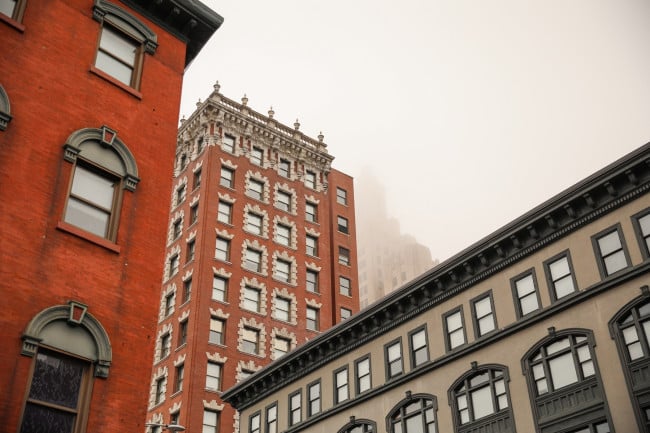What's currently negotiable when buying an apartment in NYC?

Signs of a sluggish New York real estate market aren’t just in the numbers, they’re also on the fine print.
iStock
Apartments available for sale in Manhattan are piling up and and sales are slowing in the outer boroughs, so sellers are increasingly turning to creative inducements to get buyers to sign on the dotted line—and that’s on top of what is typically open to negotiation, like some fees.
“Right now a successful sale is one where everyone’s a little bit uncomfortable,” says Michael Graves, a broker with Douglas Elliman. “If you’re not negotiating, you’re not going to be successful in this market,” he says.
Teresa Stephenson, president of Platinum Properties agrees it’s time to dust off your bargaining skills. When asked what’s negotiable in today’s market, she has a one-word answer: “Everything." She says the first quarter of 2019 is as good as it'll get.
"As you’re waiting for it to bottom out, interest rates are going to go up. If you’re paying all cash, as a lot of New Yorkers are, then maybe waiting it out isn’t a bad idea, but I think we are in a very good place right now and if you wait for it to get to the very bottom, a lot of times you just miss out," she says.
So if you are in the market for a new apartment in NYC, here's how you can take advantage of the current market:
The price
The most obvious opportunity for negotiation is on the price of the unit.
“Most properties are overpriced by at least 10 percent,” says Donna Olshan, president of Olshan Realty, and offers asking for 10 percent off, or even more aggressive lowball offers, are being considered.
“Buyers can go in and be pretty aggressive,” says Stephenson, particularly when it comes to new developments. “With a new development, you’re dealing with a more sophisticated seller than with a resale, so they’re quicker to pick up on the fact that they have to drop their prices,” she says.
Andrew Gerringer specializes in new developments at The Marketing Directors. He says the properties that need to offer the biggest discounts are “the large, very expensive apartments where the developers most likely overpaid for the land and building, and ended up having pricing that’s not in line with the market."
If you're looking to negotiate a resale, keep an eye out for these clues that a seller might be keen to negotiate on price: The time the unit has been on the market, changes to the listing brokers and falling prices seen in comparably-priced listings, called comps.
Closing costs, flip taxes and common charges
The additional charges associated with a sale are the closing costs. Typically, a buyer is required to pay things like transfer taxes and lawyer fees, but now it looks a bit different. “Concessions for closing costs is a regular item on the menu, particularly in new development,” says Olshan, and these can be valuable discounts.
Stephenson says “some developers are offering to pay a six-percent broker commission. That is double the norm. In addition, there’s a willingness to pay several years of common charges.” Last month, the developer Extell was offering to pay common charges for up to five years during an end-of-year fire sale. The seller of this Columbia Heights condo is offering to pay the monthly common charges for the first three years.
There are plenty of examples of listings where the sponsor of a condo or seller is prepared to pay transfer fees, like this Greenpoint studio, where the seller is offering to pay the city and state transfer taxes.
Stephenson says flip taxes on a co-op are also more negotiable. Sellers are prepared to split or take on the cost. "It’s something you can ask for now, whereas before it was something you weren’t even going to discuss," she says.
Donna Olshan agrees. "The flip tax is definitely an item that is more in play. The flip tax is just a function of price," she says.
Finishes and other perks
You can't expect a customized new condo, but brokers say there are opportunities for buyers to ask for upgrades for finishes or appliances when you have new developments that are not completely built out. Stephenson says “agents are seeing developers offering to help with alterations to the apartment.”
In resales, it translates into perks being offered to buyers who come in at asking price. Virginia Roberts, a broker with Brownstone Real Estate, recently sold a condo in Red Hook that promised a Van Moof bike to the buyer paying list price. “The buyer is definitely keeping the bike—it's gorgeous,” she says, adding, “I wouldn't say that the Van Moof brought the offer, but it certainly was a great bonus.”
Closing credits
Negotiating for closing credits—a discount a buyer gets on the price at closing—is another tactic. It allows the developer to record a higher sales price, something they value because they're selling multiple units. You'll encounter this in new development and sometimes in older co-ops. Asking for a credit at closing can be savvier than asking for the same amount to come off at the start of your negotiations. A drop in the sales price makes a fractional difference to your mortgage but the same amount in closing credits can be more meaningful.
However, Stephenson warns buyers against being too discount happy. "One of the mistakes buyers make is that they are more worried about getting a discount than they are about getting a good price, so what you really need to look out for as a buyer is the comps that are out there. Some brokers will build in potential discounts into the listing price but if someone does list at a good price the property should go very quickly."
For sellers, she says one of the best things they can do is take a tour of the competition. "Sellers are having sticker shock when they see how low they have to list their apartments, especially after the last many years when we've seen prices going up and up."
You Might Also Like



























